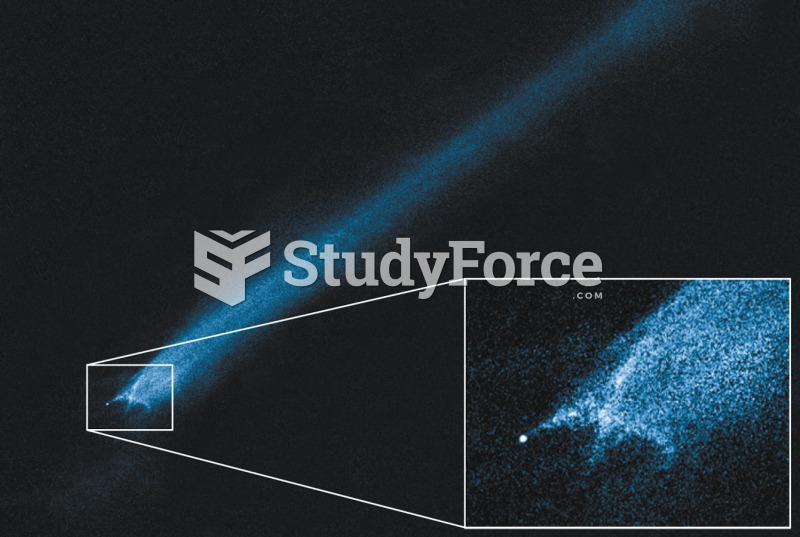The compact concentration of most asteroids in a well defined belt suggests one of two possible origins: either the fragments of a planet broken up long ago, or they are primal rocks that somehow never managed to form a genuine planet. On the basis of the best evidence currently available, and consistent with current theories of solar system formation, researchers strongly favor the latter view. There is far too little mass in the belt to constitute a planet, and the marked chemical differences between individual asteroids indicate that they could not all have originated in a single planet. Instead, astronomers believe that the strong gravitational field of Jupiter continuously disturbs the motion of these chunks of primitive matter, nudging and pulling at them, preventing them from aggregating into a planet.
a. Modern astronomers believe that asteroids are rocks that are fragments of a planet that has broken up many years ago.
b. Asteroids differ markedly in chemical composition, making them difficult to understand.
c. Asteroids may have formed together as a planet except for the gravitational pull of the Earth.
d. Asteroids are compact and travel in a well defined belt, suggesting that they are fragments of a long ago planet or that they are primal rocks that have not formed into a planet.
Question 2
To learn about even a single organism is a truly Herculean task. It is much easier to understand a cloud than a chrysanthemum, simpler to comprehend a moraine than a moose, less difficult to perceive a tornado than a tarantula. If our goal as geographers were a complete understanding of the world's organisms, we would need at least the life span of a Methuselah. As beneficial as such knowledge would be, however, a student of geography can be a bit less ambitious. With organisms, as with every other feature of the world, the geographer must focus on certain aspects rather than on a complete comprehension of the whole.
a. To learn about even a single organism is a truly Herculean task.
b. Organisms are so difficult to completely understand that geographers must focus on certain aspects rather than the organism as a whole.
c. Organisms are harder to understand than clouds, flowers, animals, insects, tornadoes, etc.
d. Most geographers have a long term goal to completely understand most of the world's organisms.







